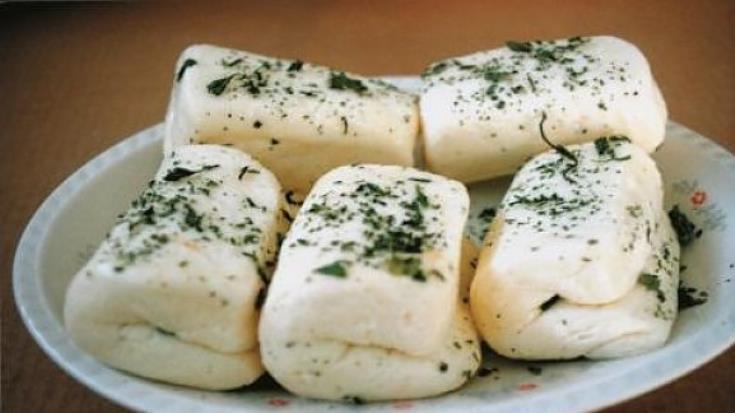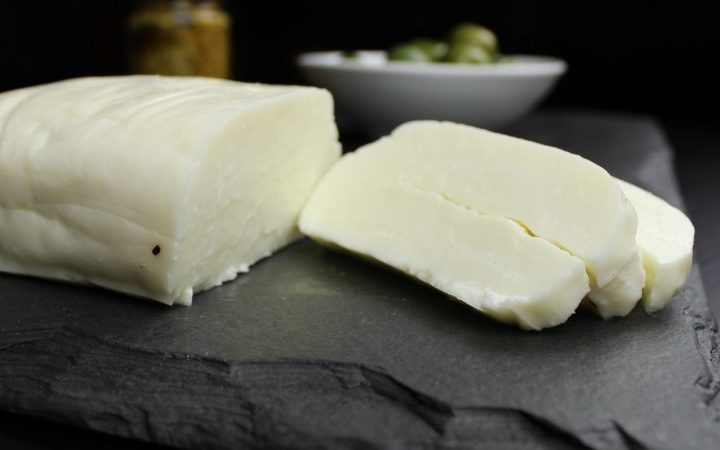Turkish Cypriot cheesemakers say they are in the dark over a historic move for Cyprus’ iconic cheese halloumi to be legally shielded under the European Union’s Protected Designation of Origin (PDO) product.
News of the registration was met with scepticism in the north, along with calls for more clarity about how inspections will be carried out to verify production standards.
Turkish Cypriot stakeholders have welcomed the development allowing them to trade their halloumi (hellim in Turkish) to the EU but say they have not been informed of the details.
In comments to Turkish Cypriot News Agency TAK, farmers, dairy producers, and the Chamber of Commerce and Industry (KTTO and KTSO) expressed concerns over trade procedures through the Green Line.
The head of the Turkish Cypriot dairy producers’ association, Mustafa Baslar, said cheesemakers in the north are dubious over procedures to be followed for trade across the divide and will only be convinced once the first block of halloumi is sold in the EU.
The head of the Turkish Cypriot Chamber of Commerce (KTTO), Turgay Deniz, said at the current stage, the geographic registration of hellim and the expectations required for trade have not been clearly shared.
He argued that it is not clear who will carry out the health and hygiene inspections related to exports to be made through the Green Line Regulation.
Deniz said it is important the matter be resolved within the 2015 agreement of the Cypriot leaders for Bureau Veritas to be the PDO inspection body.
The head of the Turkish Cypriot Farmers Union, Huseyin Cavus Kelle, said his association would only accept checks at production points to be carried out by impartial third parties.
Concerns were also raised over the need to secure the necessary quantities of sheep and goat milk for the traditional cheese’s production, similar to those raised by their Greek Cypriot counterparts.
Referring to the milk ratio provided in the PDO file, which must be at least 51% goat and sheep milk, dairy farmers association leader Mustafa Naimogullari, said it was too high.
He noted that production in the north was between 5 and 10%, and that time and animals was needed to raise this percentage.
Farmers and dairy producers in the north are requesting a 10-year grace period.
Cyprus Agriculture Minister Costas Kadis said that halloumi trade from the north would be made under rigorous conditions.
He said for about a year; there would be no trade from the Turkish occupied north to ensure that the region is free from animal diseases or imports of products or animals from Turkey.
That will have to be certified by the international organisation making phytosanitary.
Currently, processed foodstuffs are not allowed to be traded under the Green Line Agreement.
On April 12, the College of EU Commissioners is to ratify the Commission’s decision to give Halloumi PDO status and allow Turkish Cypriots to trade their halloumi with the EU through the Green Line.
According to reports, Turkish Cypriots currently export some €30 mln worth of Hellim mainly to Turkey and the UAE.
Cyprus’ PDO file gained momentum after an agreement was struck between Turkish Cypriots and Greek Cypriots to overcome political obstacles.
On July 16, 2015, a few days before the publication of Cyprus’ halloumi file in the EU Journal, President Nicos Anastasiades and then Turkish Cypriot leader Mustafa Akinci reached an understanding with then European Commission President Jean-Claude Juncker.
After the agreement, it was understood that halloumi had found its way out of the political entanglement.
Juncker’s office issued a statement saying there was “consensus” on halloumi, but the PDO file remained locked away in Brussels until March.










